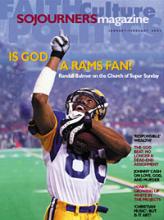Since 1915, the Fellowship of Reconciliation has been the most influential faith-based peace organization in the United States and, indeed, the world. The FOR exposed the insanity of World War I, promoted nonviolent responses to the Holocaust, fought Cold War nuclear proliferation, introduced active nonviolence to the civil rights movement, and pioneered a dialogue among Christian, Jewish, Buddhist, Hindu, Muslim, and Native American peacemakers. Now, to mark the FOR's 85th anniversary, Walter Wink has distilled nearly a century of peacemaking wisdom in this collection of essays drawn from FOR publications. Many of the classic peace essaysfrom Martin Luther King Jr.'s "Pilgrimage to Nonviolence" to Thich Nhat Hanh's "Being Peace"appeared in the pages of Fellowship or its predecessors.
Though the diversity of voices is remarkable, the collection reveals the abiding legacy of three individuals: Mohandas Gandhi, Martin Luther King Jr., and Reinhold Niebuhr. The book's title is a quote from Gandhi, and he is mentioned in roughly half the essays, by authors as diverse as the German Lutheran Martin Niemoeller, the Trappist monk Thomas Merton, and the Irish Nobel laureate Mairead Corrigan Maguire. Most often, Gandhi appears as the apostle of active nonviolencein King's words, "the first person in history to lift the love ethic of Jesus above mere interactions between individuals to a powerful and effective social force." Gandhi helped Western Christians recognize that Jesus' "cheeky" resistance to violence offered an alternative to both just war theory and the social withdrawal of many peace churches.
Read the Full Article
